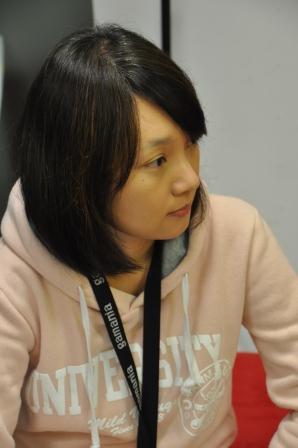
▲GHQ-CSO-Jennyhm Lee
Little Tip: Categorize according to frequency of use; don’t move it if you don’t need to use it; one year is the limit; establish rules.
Jennyhm is the secretary for the Group Strategic Director’s Office. She has developed some good habits in the workplace, which allow her to increase her work efficiency and prevents her from having to waste time looking for certain objects. Jennyhm’s secret to high workplace efficiency is being able to find anything she needs in a very short period of time.
As the Age-Old Chinese Proverb goes: “If You Want to do a Good Job, You Must First Obtain the Right Tools.”
Complex and detailed work responsibilities have forced Jennyhm to remember the locations of her items. She categorized her belongings based on the frequency of usage – her principle is to place frequently used items on her desk and infrequently used items in her drawers. Doing this helps her reduce the number of times she needs to open her drawers, which in turn reduced the amount of wasted time doing such things. By accumulating the time saved from all of these little things, Jennyhm’s time has in effect become more abundant.
Managing business cards is a necessary part of many people’s work lives. Good categorization work will not only make your environment clean and neat, but will also make your work efforts even more convenient. Jennyhm uses two principles to organize her business cards. First, she arranges her business in alphabetical order, and then she further organizes them according to whether the cards are from a domestic or foreign company as well as the business’s industry type. This system allows Jennyhm to find whatever business card she needs in the shortest possible amount of time.
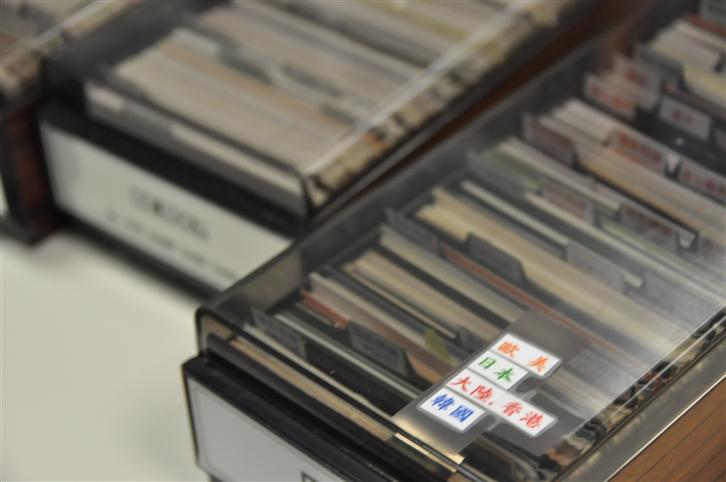
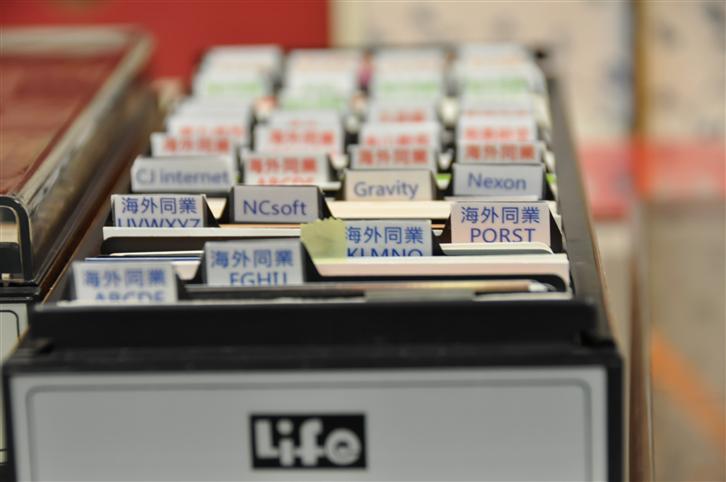
Establish Your Own Rules
However, business cards are not the only things that need organizing. Jennyhm recommends that everyone set up their own rules, and then abide by those rules to keep your environment as neat and as organized as possible. For example, Jennyhm’s secretarial responsibilities require her to frequently access and use various files and meeting records; therefore she organizes her documents, meeting records, and files in front of everything else, allowing her to reach them by simple lifting her arm. For people who frequently use invoices, they could establish an invoice organization box, that way they will be able to easily see where their invoices are, even if they have many objects on their desk.
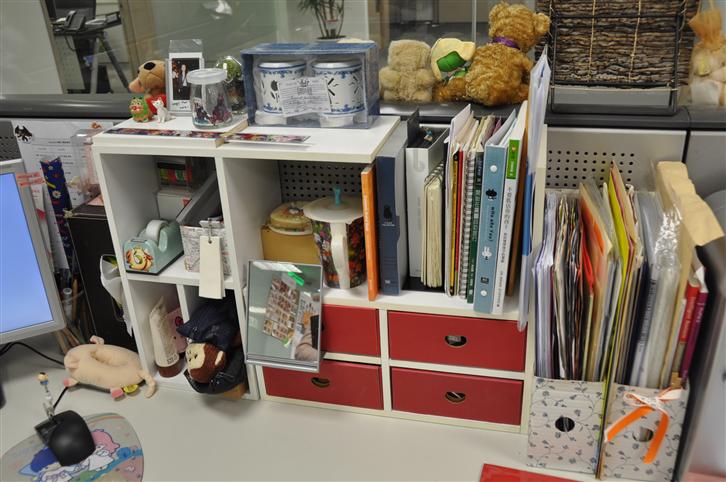
Establishing rules requires patience. You need to memorize the rules, and to establish and abide by those rules. After a while, however, all of this will become a habit for you and will feel as natural as washing your face and brushing your teeth. The benefit of always putting things back into their original positions is similar to what is described in the saying “If you always return what you borrow, borrowing again in the future will not be a problem.” Being able to find everything easily without having to spend time searching is a small effort that can reap huge benefits for those whose work lives are as busy as those of little Gamanians.
The Contributions of “Love me, Love my Dog”
A clean and well-organized environment can help you maintain a good mood, and sometimes can even have other unexpected benefits. Jennyhm used to work in a bank, where she got into the habit of carefully organizing all of her withdrawal slips. The senior staff that sat next to her was exactly the opposite; he was always looking for various slips and invoices, and whenever he could not find some bank slip, Jennyhm was always able to pass one ever to him calmly and graciously. After a while, that senior staff would always “look after” Jennyhm and help her out whenever she needed it, allowing Jennyhm to advance very quickly and easily at her bank. It can be very annoying and aggravating when you need to use something and you can’t find it. Jennyhm was always able to calm and even avoid her senior colleague’s aggravation, resulting in him always “owing her one.”
Deciding What to Keep and What Not
There are many items that although aren’t particularly useful, but at the same time, it would be a pity to throw them away. Regarding how to decide what and what not to keep, Jennyhm believes that your decision must be made at the very beginning when you first put your hands on the item. When Jennyhm gets her hands on an item, the first thing she does it calmly thinks about whether or not that item would be of any actual use to her? Would she need to use it in the future? Only if she actually needs the item will she take it. Those things that she doesn’t really need or the things that she may only use once or twice in a very long time, she would firmly decide to discard. This is the only way to avoid infrequently used items from taking up too much of your work and desk space.
When we are shopping, many stores encourage customers to buy more by offering gifts when you buy a certain amount of goods. At this time, we should carefully think about whether or not we really need those items and not just about the discounts that we can obtain. Having an extra thermos will not increase your usage frequency, but it will take up additional area and congest your workspace.
One-Year Expiration Date for Everything
When you are cleaning your environment, the “expiration date” for all items should be one year. Anything that you have used less than three times in the past year should be recycled. Jennyhm recommends placing a paper box beside your work desk and directly placing items that you don’t use regularly in that box. Once the time limit is reached, you can directly take that box and give away the things inside it or put it into the recycling area. It is natural for everyone’s things to accumulate over time, reduction of the number of items you have is the best organization strategy, and not trying to save and keep everything is the best approach to a clean and neat work environment.
If you do not organize your space in over a year, chaos will develop. Once that happens, it will become very difficult to re-organize your environment, and the time you will need to spend can easily exceed many times what you would only have needed to spend by simply placing everything back regularly. Jennyhm has a few words of encouragement for all Gamanians: Organizing your work environment will allow you to re-adjust your work mood, and also to adjust your emotions, which are excellent reasons to maintain a clean and well-organized environment. With such enormous benefits for such little effort – why not?
Re-Organize Your Environment and Start Over
When you are in a bad mood, re-organizing your environment is the best was to re-adjust your emotions. A major cleaning an re-organization, including changing the way your workspace decorate and where you place your items, can make you feel like you have arrived in a completely new environment, allowing you to adjust your negative memories and emotions and start anew.
You Don’t Need to Become a Neat Freak
Many people are afraid of the becoming a “neat freak” and feel that frequently cleaning and organizing your environment might give people the incorrect impression of you being a neat freak. Jennyhm says that it is unnecessary to become a neat freak, but it is necessary to keep your environment neat and tidy. In her many years of experience, neat environments have helped her increase her work efficiency. These two things that seem to not have much in common are, in fact, tightly linked to each other. A small effort to keep your work environment clean and organized can allow your work mood to remain positive and allow you to stay as efficient and as effective as possible, and therefore its importance is self-evident.
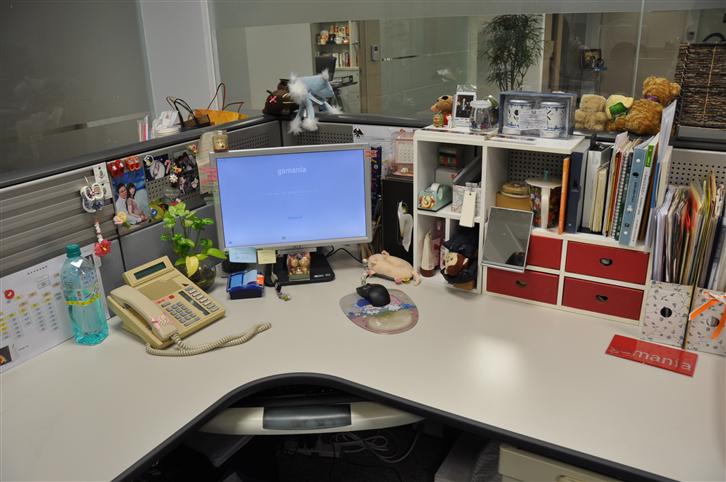
▲Jennyhm’s work environment is clean and tidy.
